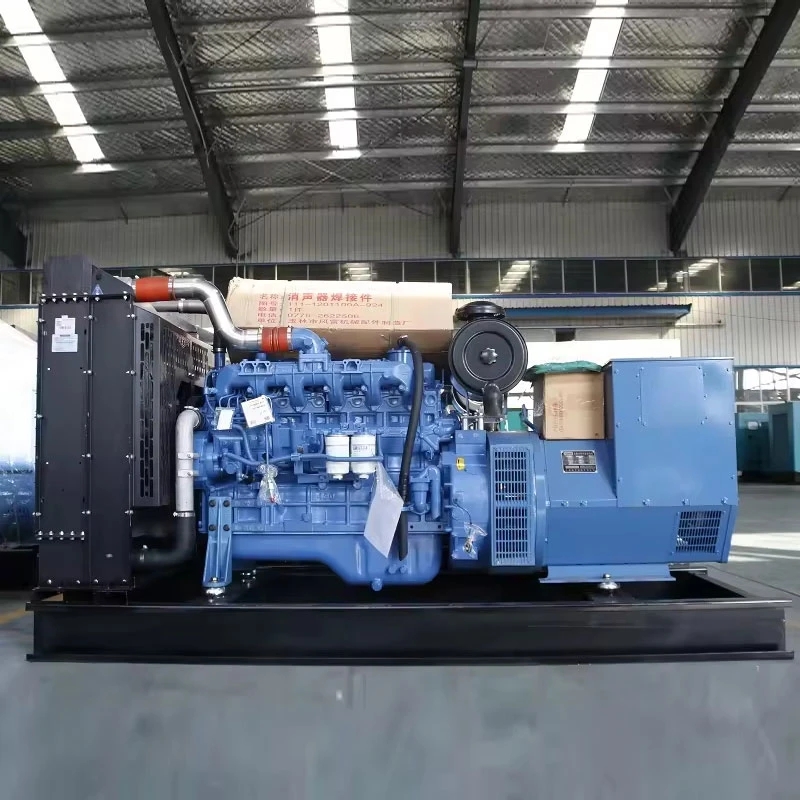The Crucial Role of Diesel Generators in Telecommunications Networks
Introduction:
In today's interconnected world, telecommunications networks play a vital role in enabling communication and data transfer across the globe. These networks rely on a continuous and reliable power supply to ensure uninterrupted operations. One of the key components that ensure the smooth functioning of telecommunications infrastructure is the diesel generator. Diesel generators serve as a reliable backup power source that kicks in during power outages or disruptions, ensuring that critical communication services remain operational. In this article, we will explore the importance of diesel generators in telecommunications networks, their key benefits, challenges, and the future outlook for this crucial technology.
Importance of Diesel Generators in Telecommunications:
Telecommunications networks are highly dependent on a stable power supply to ensure seamless communication services. Any disruption in power can lead to service outages, impacting businesses, emergency services, and individuals relying on these networks. Diesel generators play a crucial role in providing backup power during emergencies, ensuring that essential communication services remain operational even in the event of a power outage.
Telecommunication facilities such as cellular towers, data centers, and communication hubs are often located in remote or challenging environments where access to the main power grid may be limited or unreliable. In such cases, diesel generators serve as a dependable power source, capable of providing continuous electricity to keep the network running smoothly.
Key Benefits of Diesel Generators for Telecommunications:
1. Reliability: Diesel generators are known for their reliability and durability, making them an ideal choice for backup power in telecommunications networks. These generators can quickly start up and provide power within seconds of a power outage, ensuring minimal disruption to communication services.
2. Fuel Efficiency: Diesel generators are more fuel-efficient compared to other types of generators, making them a cost-effective choice for telecommunications providers. The fuel consumption of diesel generators is relatively low, allowing them to run for extended periods without the need for frequent refueling.
3. Longevity: Diesel generators are built to last and require minimal maintenance, making them a long-term investment for telecommunication companies. With proper care and regular servicing, diesel generators can operate for many years, providing reliable backup power when needed.
4. Power Output: Diesel generators are capable of delivering high power output, making them suitable for supporting the energy-intensive operations of telecommunications networks. Whether it's powering cellular towers, data centers, or communication hubs, diesel generators can meet the demanding power requirements of modern telecommunication infrastructure.
Challenges of Diesel Generators in Telecommunications:

While diesel generators offer numerous benefits for telecommunications networks, there are also challenges associated with their use. Some of the key challenges include:
1. Environmental Impact: Diesel generators emit pollutants such as nitrogen oxides, particulate matter, and carbon monoxide, which can have a negative impact on air quality and public health. Telecommunication companies need to mitigate the environmental impact of diesel generators through proper maintenance, emission control technologies, and alternative energy solutions.
2. Operational Costs: The operational costs of diesel generators, including fuel, maintenance, and servicing, can add up over time. Telecommunication companies need to carefully manage these costs to ensure the economic viability of using diesel generators as backup power sources.
3. 150kw diesel generator and Emissions Regulations: Diesel generators can generate noise pollution, especially in residential areas or sensitive environments. Additionally, there are strict regulations governing emissions from diesel generators that telecommunication companies need to comply with to minimize their environmental footprint.
Future Outlook for Diesel Generators in Telecommunications:
As technology continues to evolve, the role of diesel generators in telecommunications networks is expected to undergo significant changes. Telecommunication companies are increasingly exploring alternative power sources such as solar, wind, and battery storage to complement diesel generators and reduce their reliance on fossil fuels.
Advancements in generator technology, including the integration of smart monitoring systems, remote diagnostics, and predictive maintenance capabilities, are enhancing the efficiency and reliability of diesel generators in telecommunications applications. These innovations are enabling telecommunication providers to optimize the performance of their backup power systems and ensure the seamless operation of critical communication services.
In conclusion, diesel generators play a crucial role in ensuring the reliability and resiliency of telecommunications networks. While there are challenges associated with their use, the benefits of diesel generators in providing backup power during emergencies far outweigh the drawbacks. By implementing proper maintenance practices, investing in emission control technologies, and exploring alternative energy solutions, telecommunication companies can maximize the efficiency and sustainability of diesel generators in their networks. As technology advances and new solutions emerge, diesel generators will continue to be a key component of telecommunications infrastructure, powering the communication networks that connect the world.